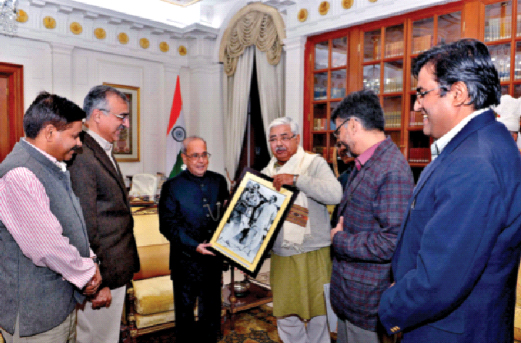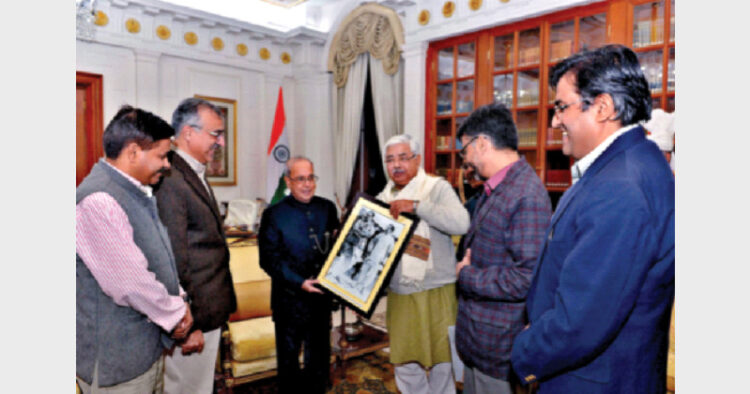Our national identity has emerged through a long drawn process of confluence, assimilation, and co-existence. The multiplicity in culture, faith and language is what makes India special. We derive our strength from tolerance. We accept and respect our pluralism. We celebrate our diversity. These have been a part of our collective consciousness for centuries. Any attempt at defining our nationhood in terms of dogmas and identities of religion, region, hatred and intolerance will only lead to dilution of our national identity. Any differences that may appear are only on the surface but we remain a distinct cultural unit with a common history, a common literature and a common civilisation.” — Dr Pranab Mukherjee, Former President of Bharat, in his Speech during the closing ceremony of ‘Tritiya Varsha Sangh Shiksha Varg’ of Rashtriya Swayamsevak Sangh at Nagpur on June 7, 2018.

Politics is the art of best possible is a known fact, but there are very few politicians who master that art. Dr Pranab Mukherjee was one of them. Therefore, his sad demise was painful for the entire nation, transcending the party lines. A few factors that set apart Pranab Da from other politicians need to be analysed and presented to the younger generation, primarily when they are influenced by the political discourse shaped by the artificial binaries constructed through the social media.
Though Pranab Da by and large remained committed to the Congress ideology, his approach to problems was guided by sole consideration protecting national interest through consensus building. Addressing the militancy in the North-Eastern states is a good example here. He understood very well that education, health and cultural aspects are critical in handling the situation, and he had no hesitation in involving either Rama Krishna Mission or Vivekananda Kendra in the process. Intellectual rigour was his fundamental trait, and he blended that beautifully with parliamentary politics. His ability to build bridges for the national cause made him a troubleshooter not just for the party he was associated with but for the nation.
In a democracy, political or ideological untouchability is the most prominent undemocratic practice. Unfortunately, such evil practices cropped in our political system, especially in the last few decades. When Dr Mukherjee decided to visit an annual function of Rashtriya Swayamsevak Sangh at Nagpur, the usual ‘secular’ gang created hue and cry about it. Despite all pressures from within and outside his party, Pranab Da not just kept his word but said whatever he wanted to say in unequivocal terms. His conviction about the commitments he used to give was the unique feature that made him the guiding force for everyone.
My personal experience with a teacher Pranab Da is even more touching. A delegation of Organiser and Panchjanya Weeklies, under the leadership of the then Managing Director of the company Adv Alok Kumar, went to present him the Collector’s editions of the magazines on 90 years of RSS in January 2017 at the Rashtrapati Bhawan. A teacher Pranab Da not only asked questions about the special edition on 90 years of RSS but gave a piece of advice on the role of Organiser in spreading the message national integration, with particular reference to the North-Eastern and Southern States of Bharat. On his advice, the Bureau of Organiser was started in Bengaluru. A compassionate and concerned Rashtrapati of Bharat was making me realise the role of the magazine I have been editing. No wonder he was a caring Pranab Da for all.
The CoVid-19 infection and subsequent brain surgery proved to be fatal for the former President. It is a massive loss for the nation as we have lost the integrationist who had the unique ability to solve issues through the parliamentary mechanism. Taking forward his legacy of building bridges through a compassionate and caring approach while keeping national interest at the forefront would be a proper tribute to the politician who transcended politics.
@PrafullaKetkar














Comments